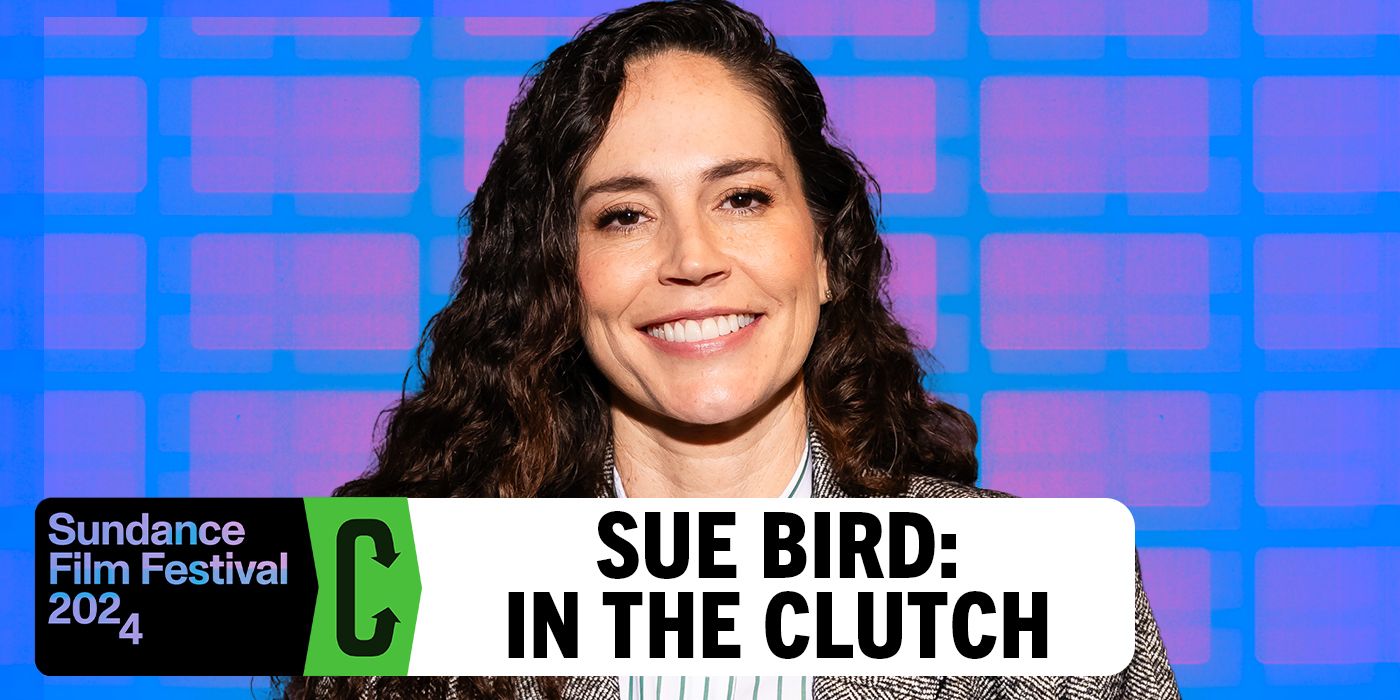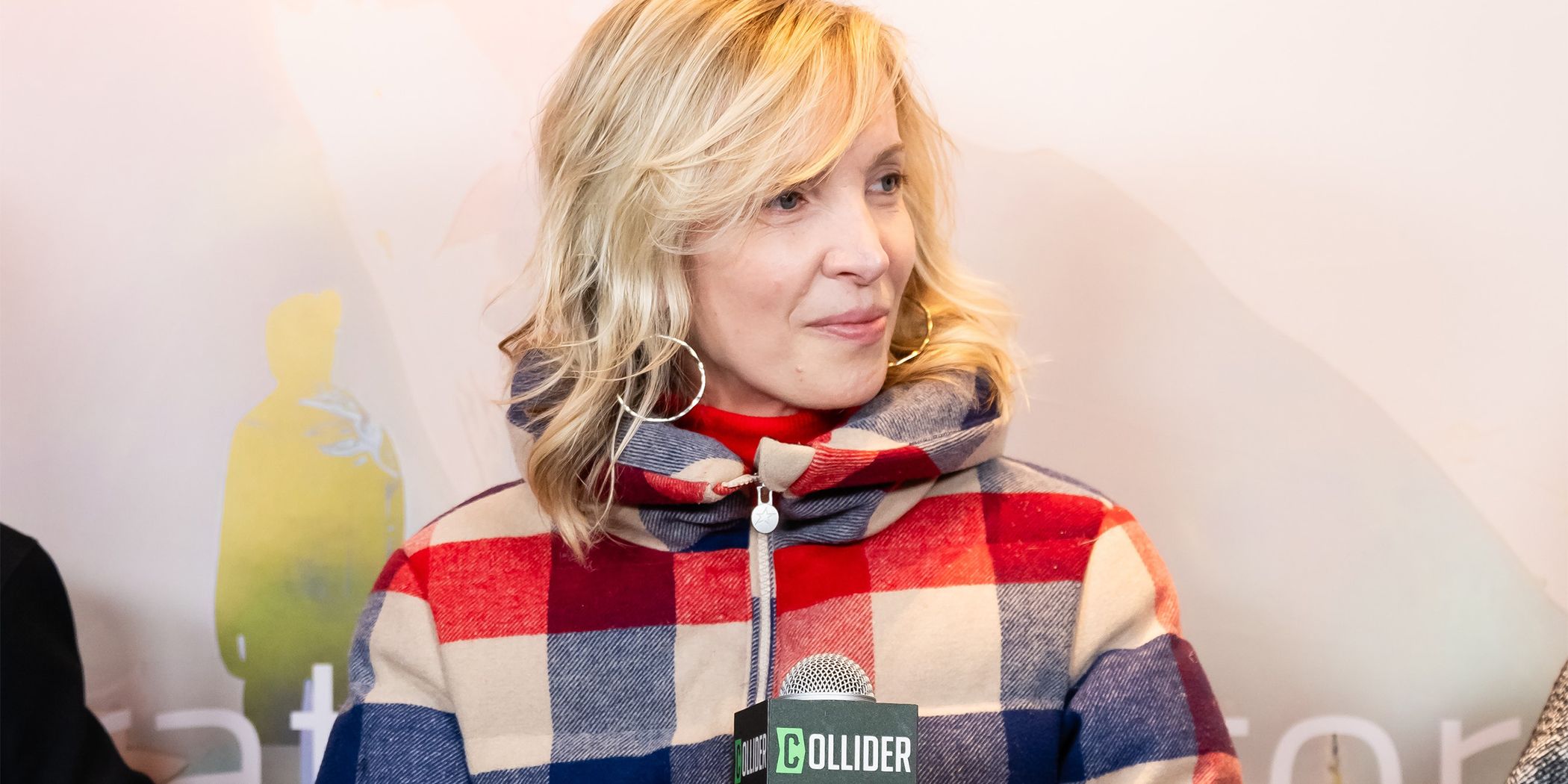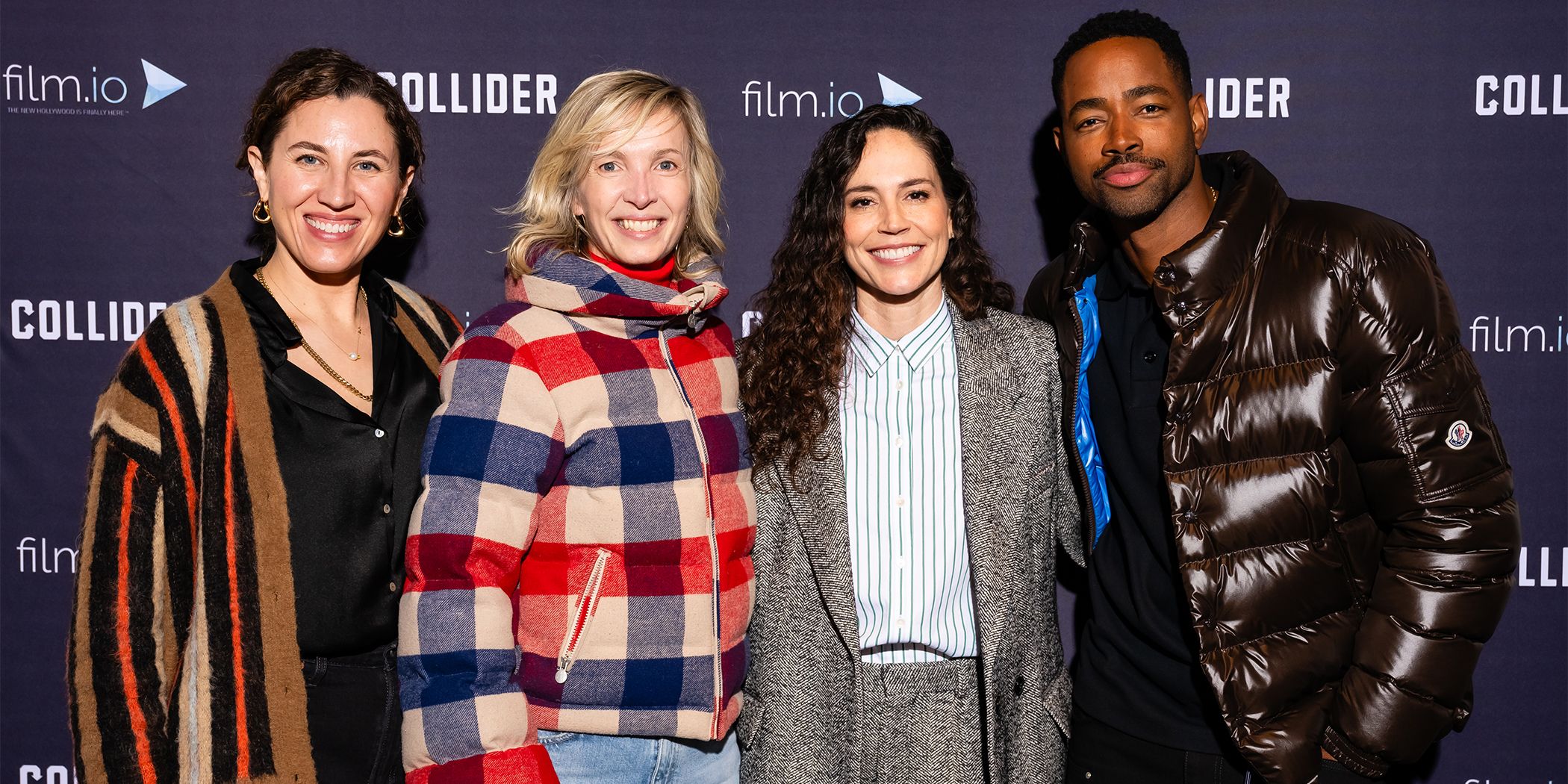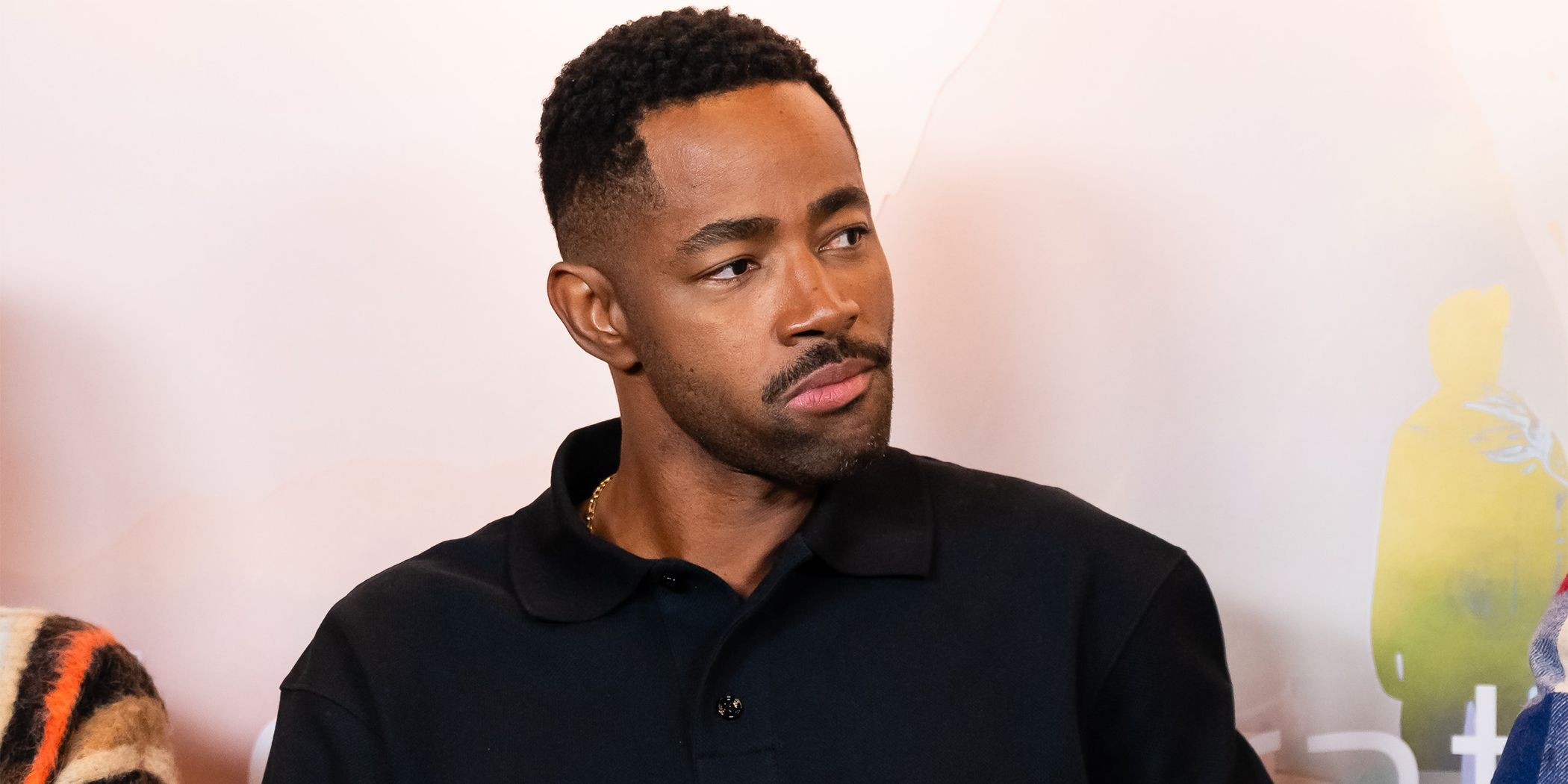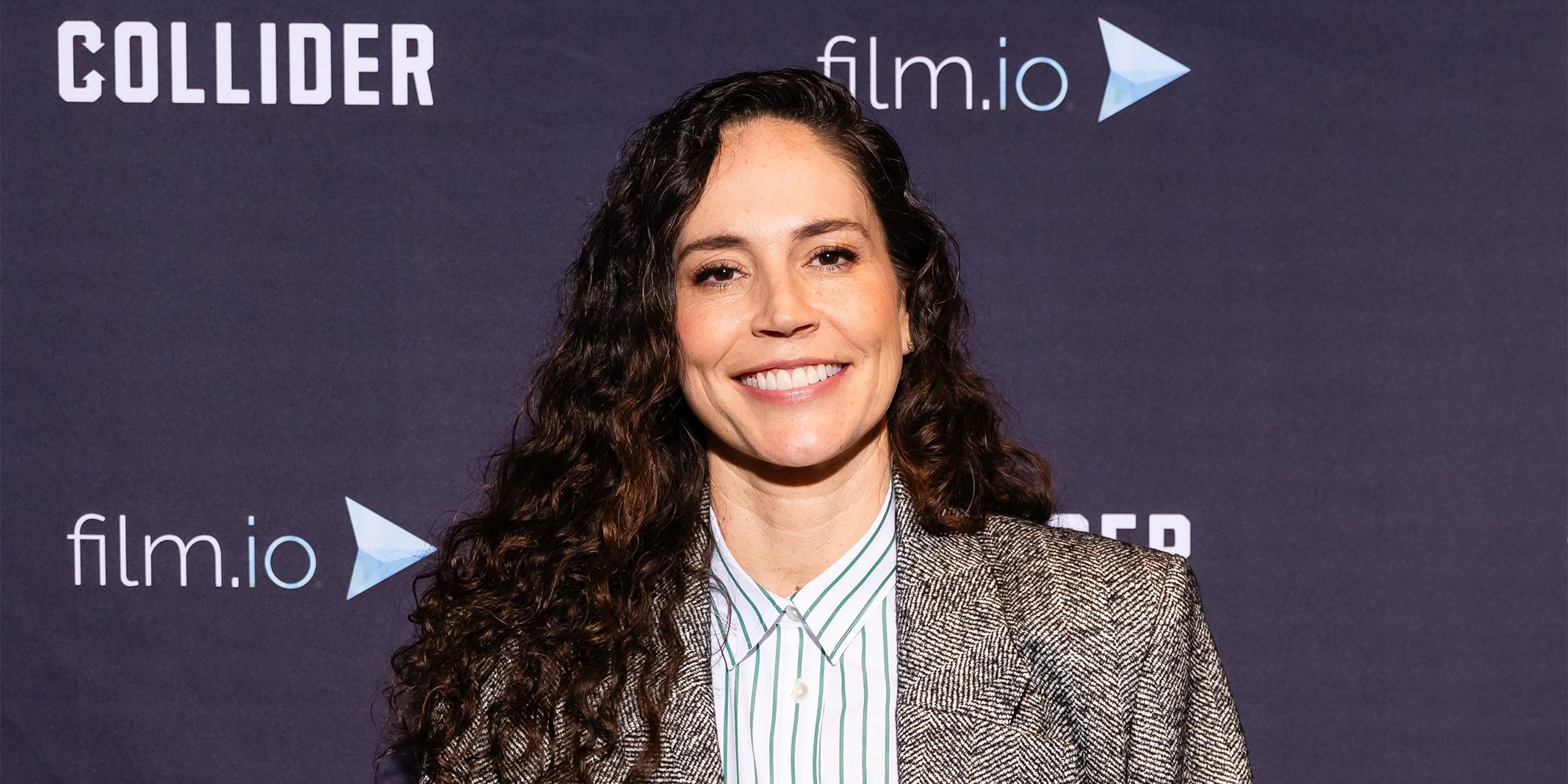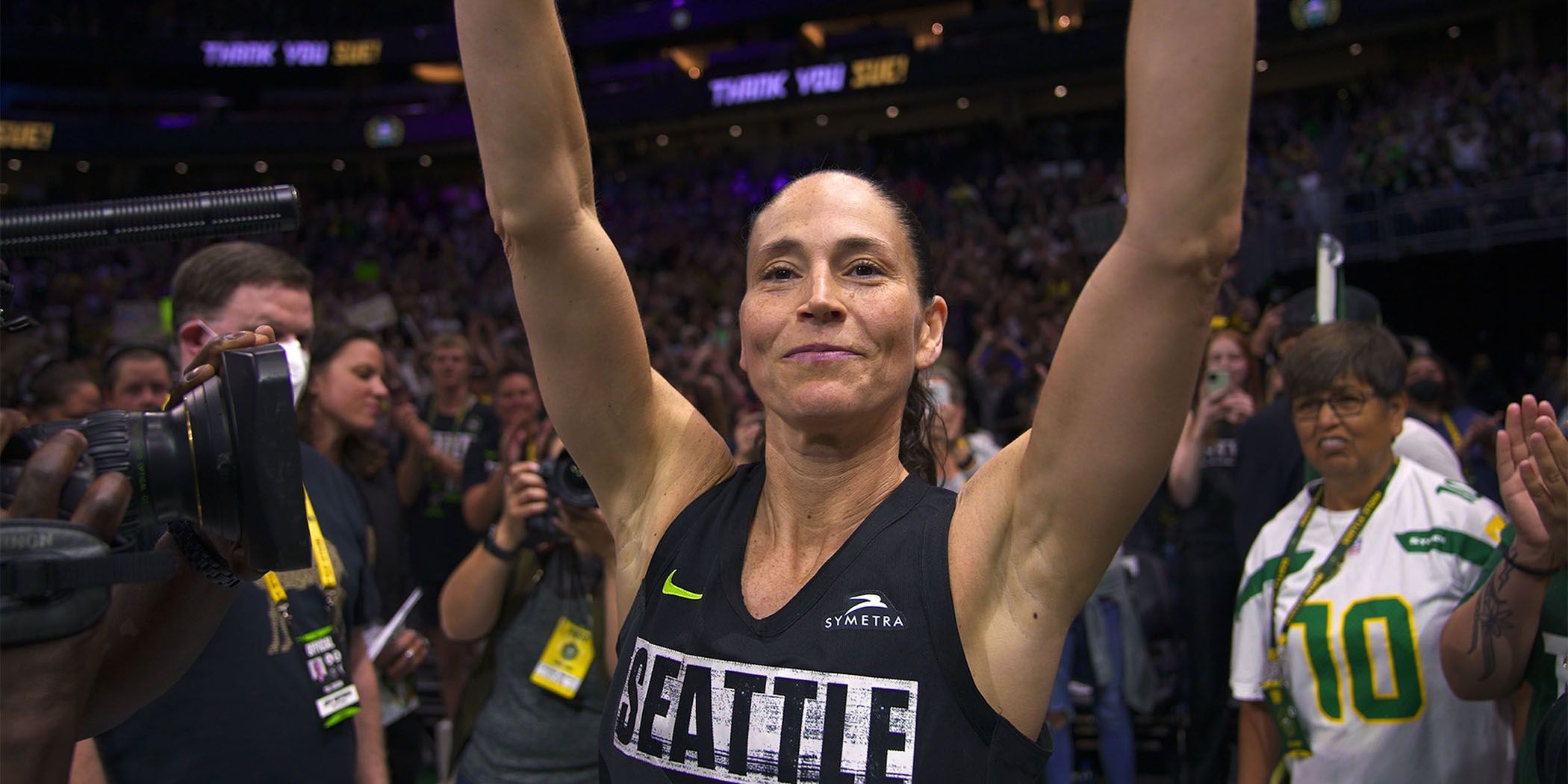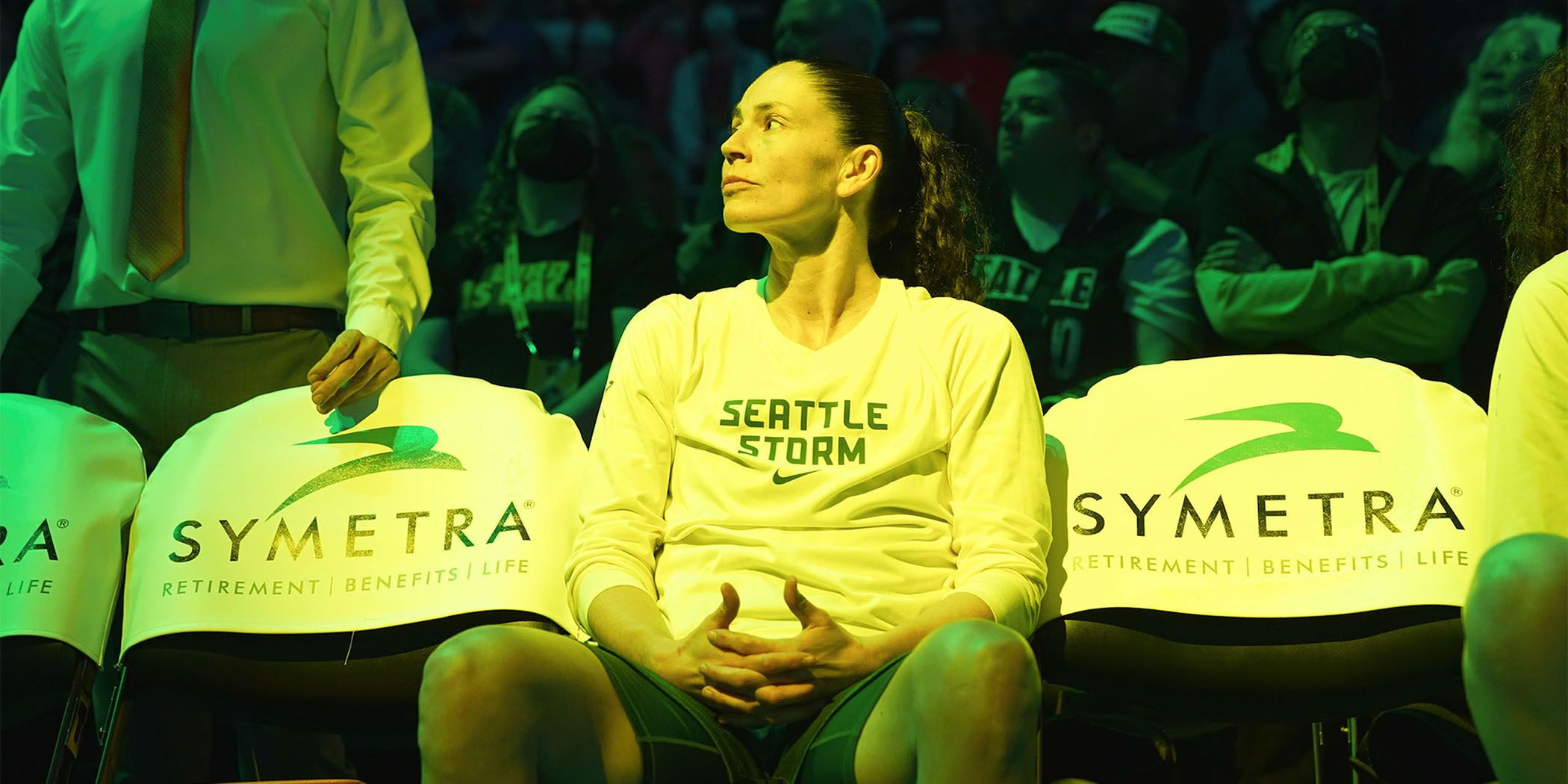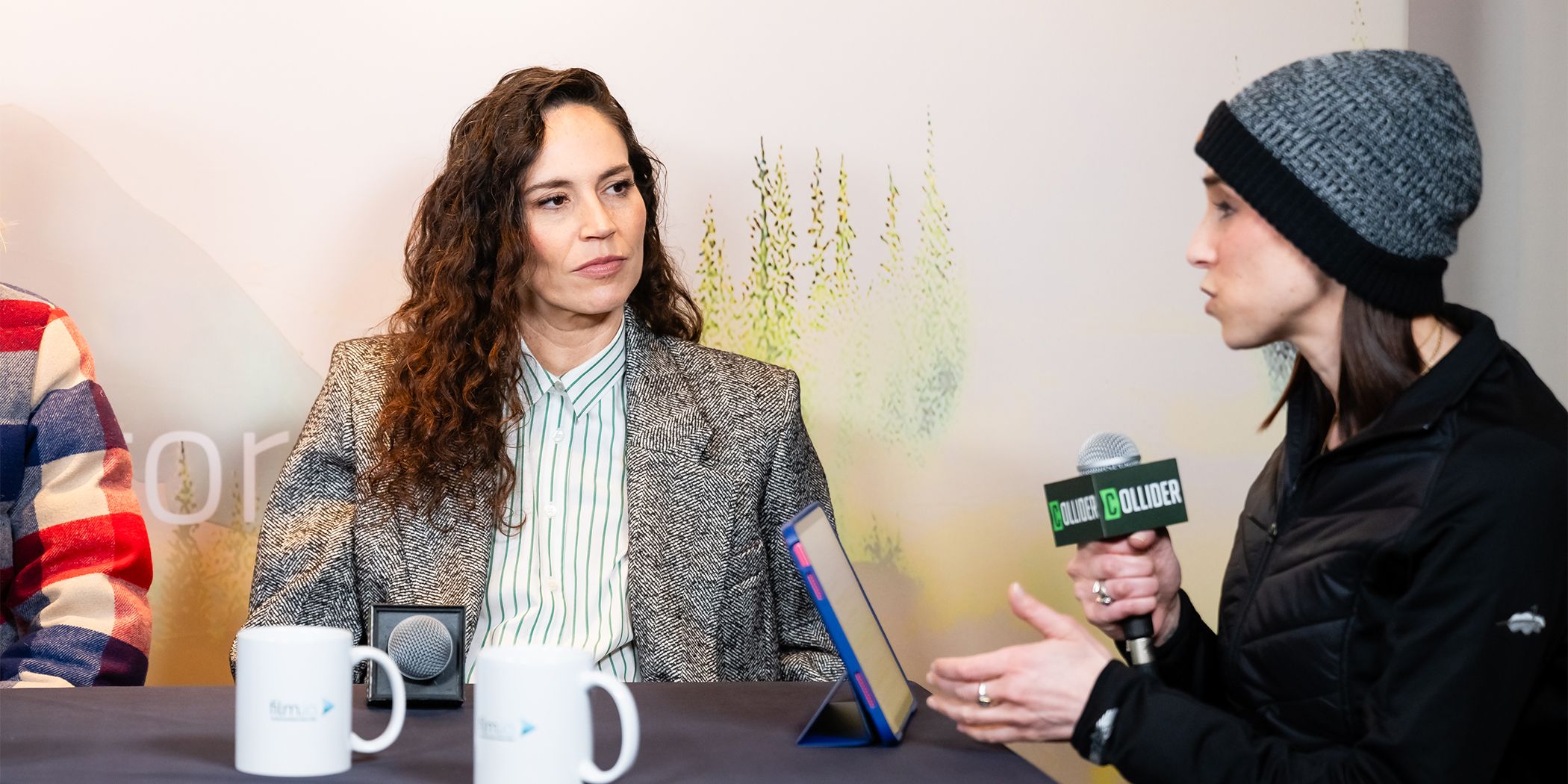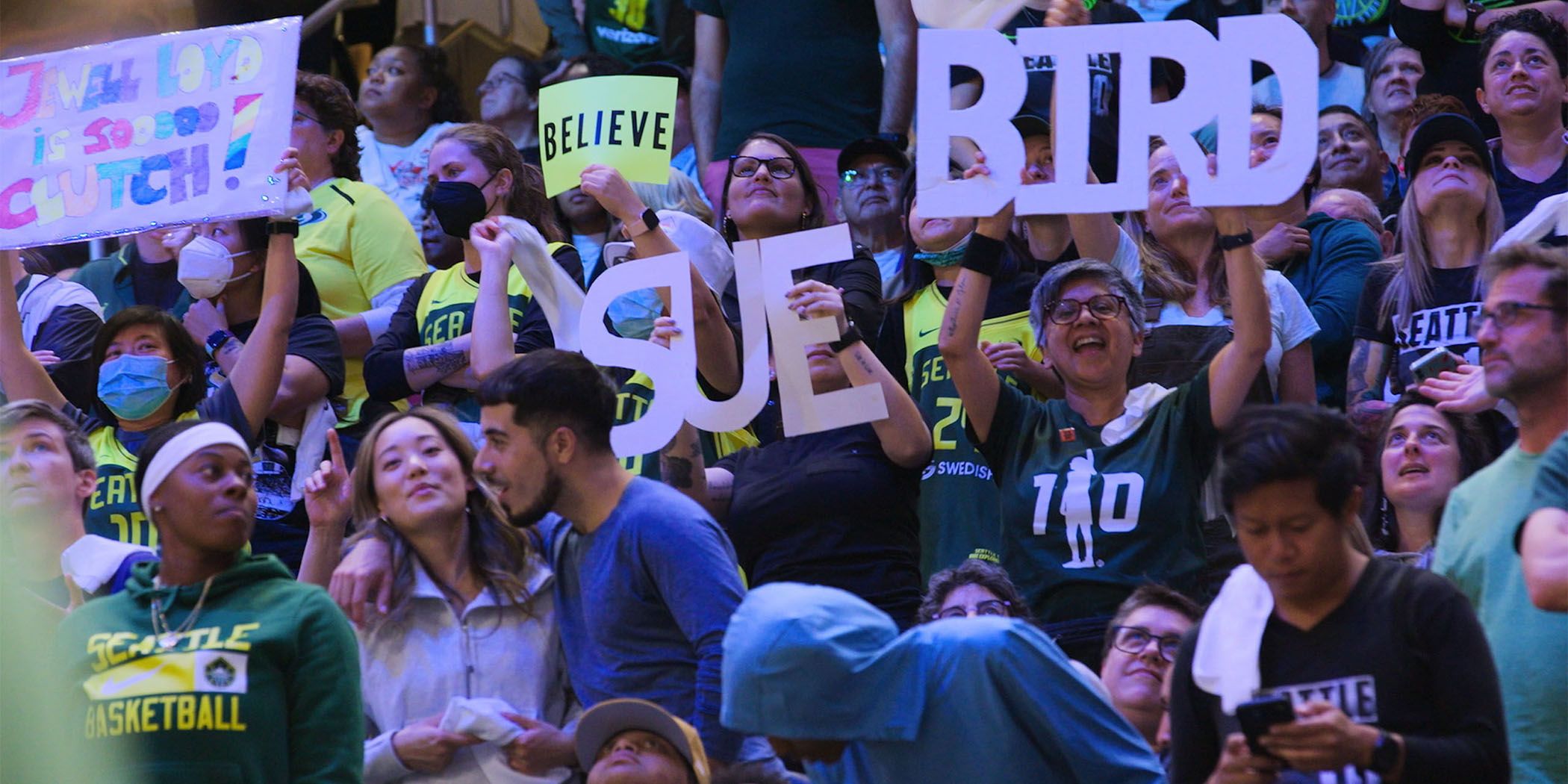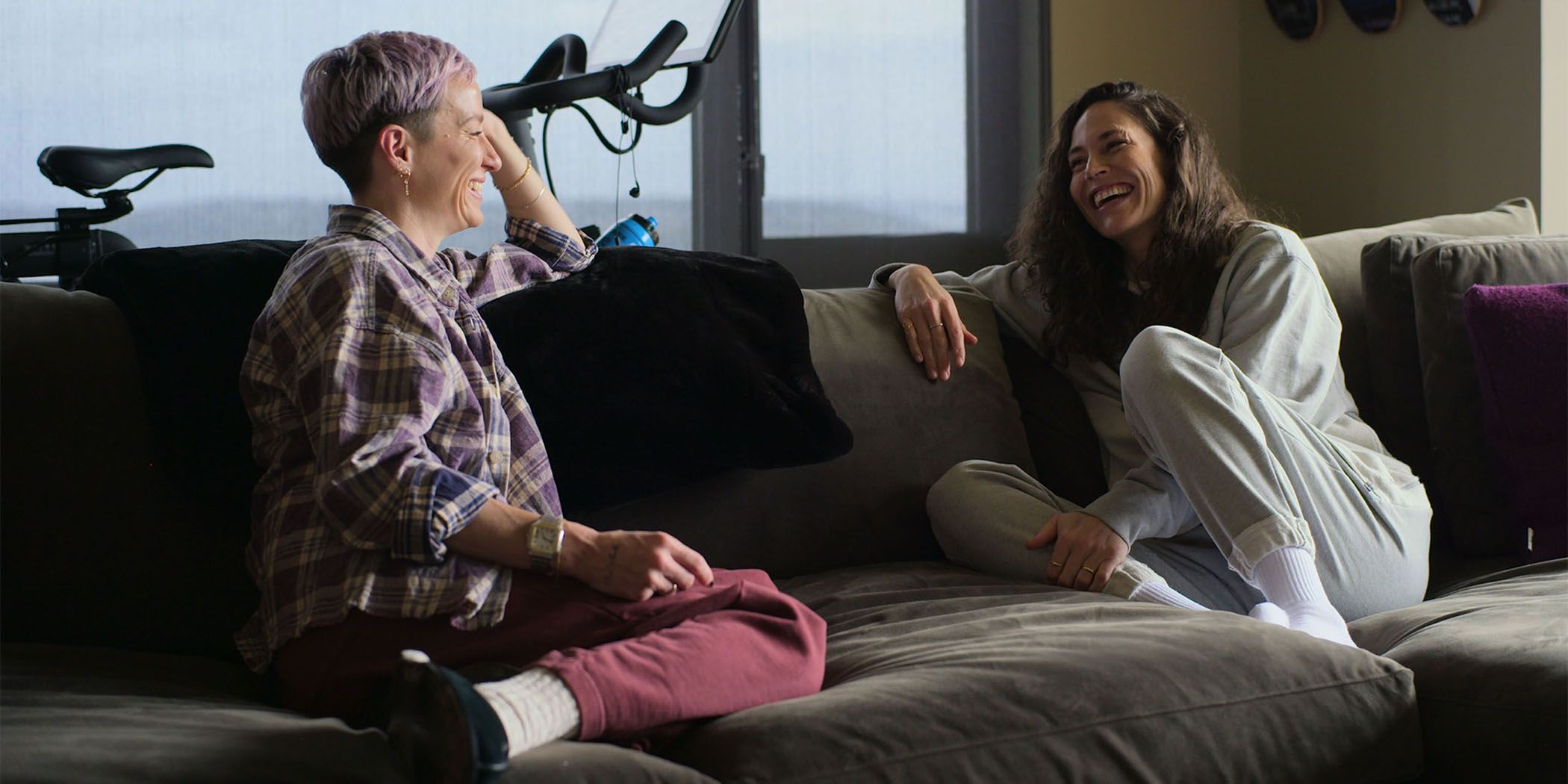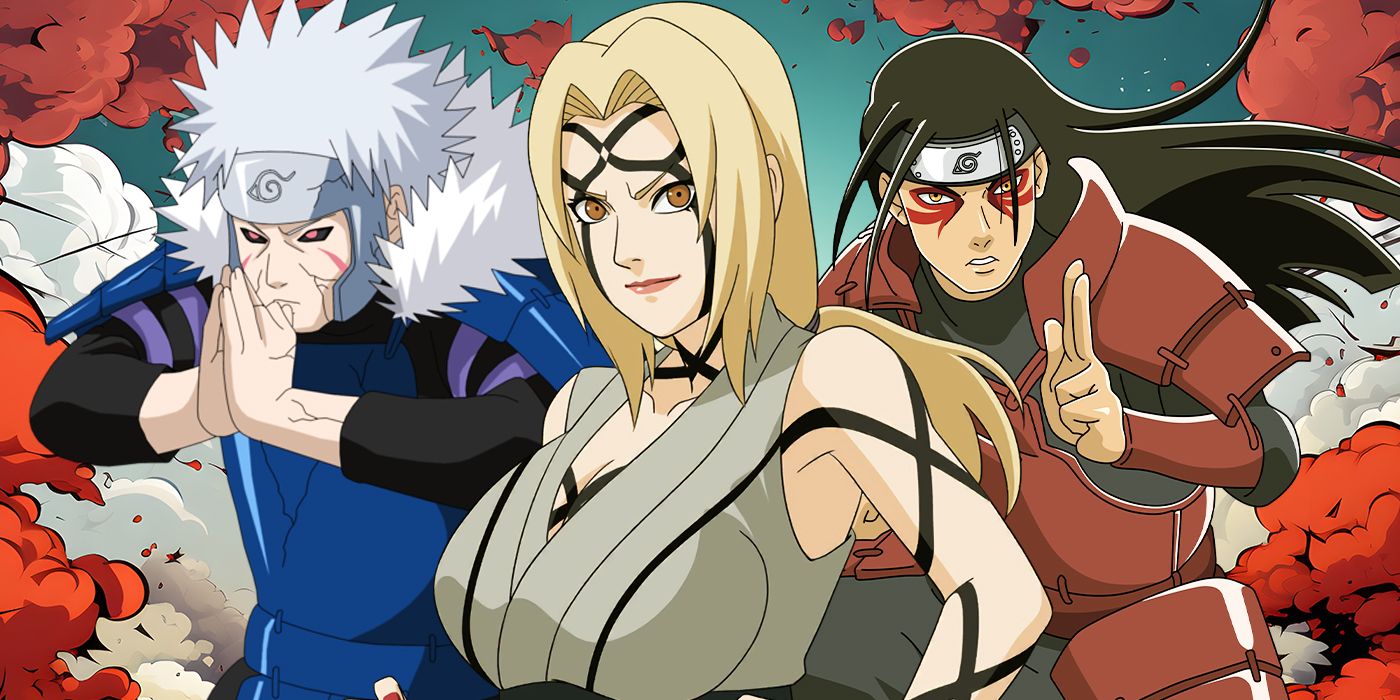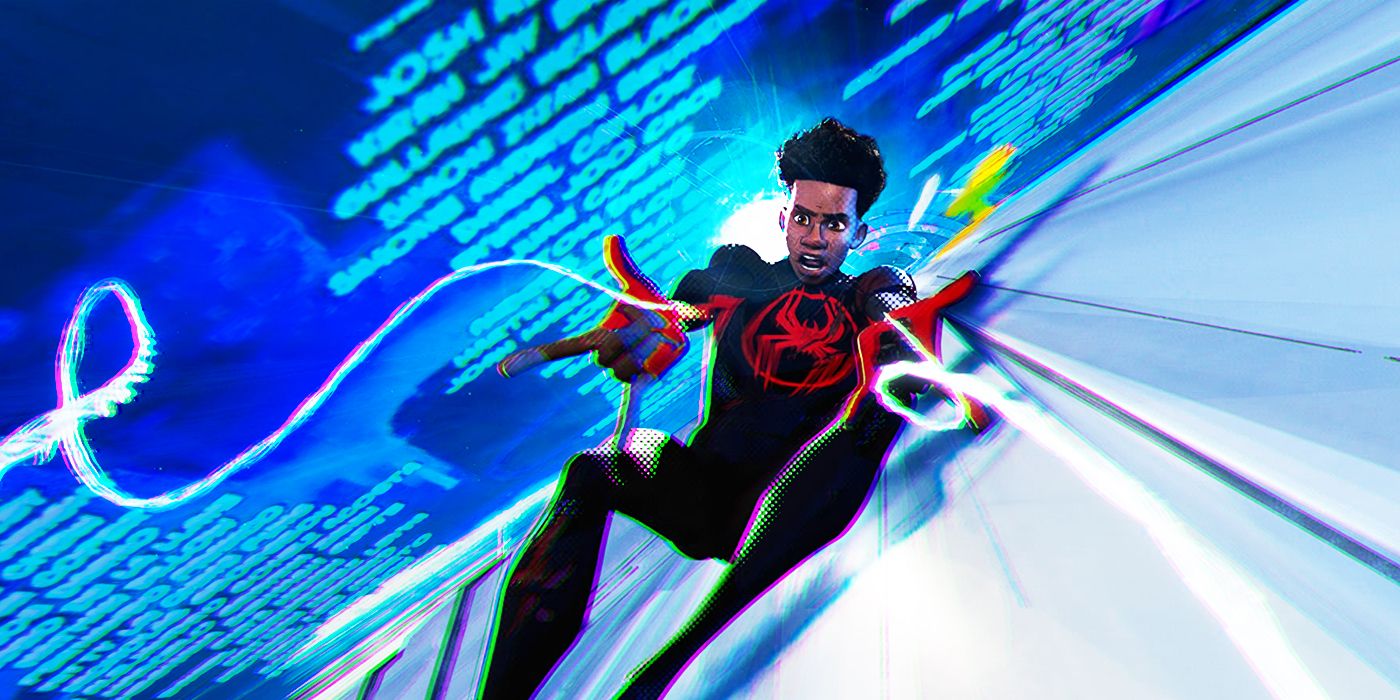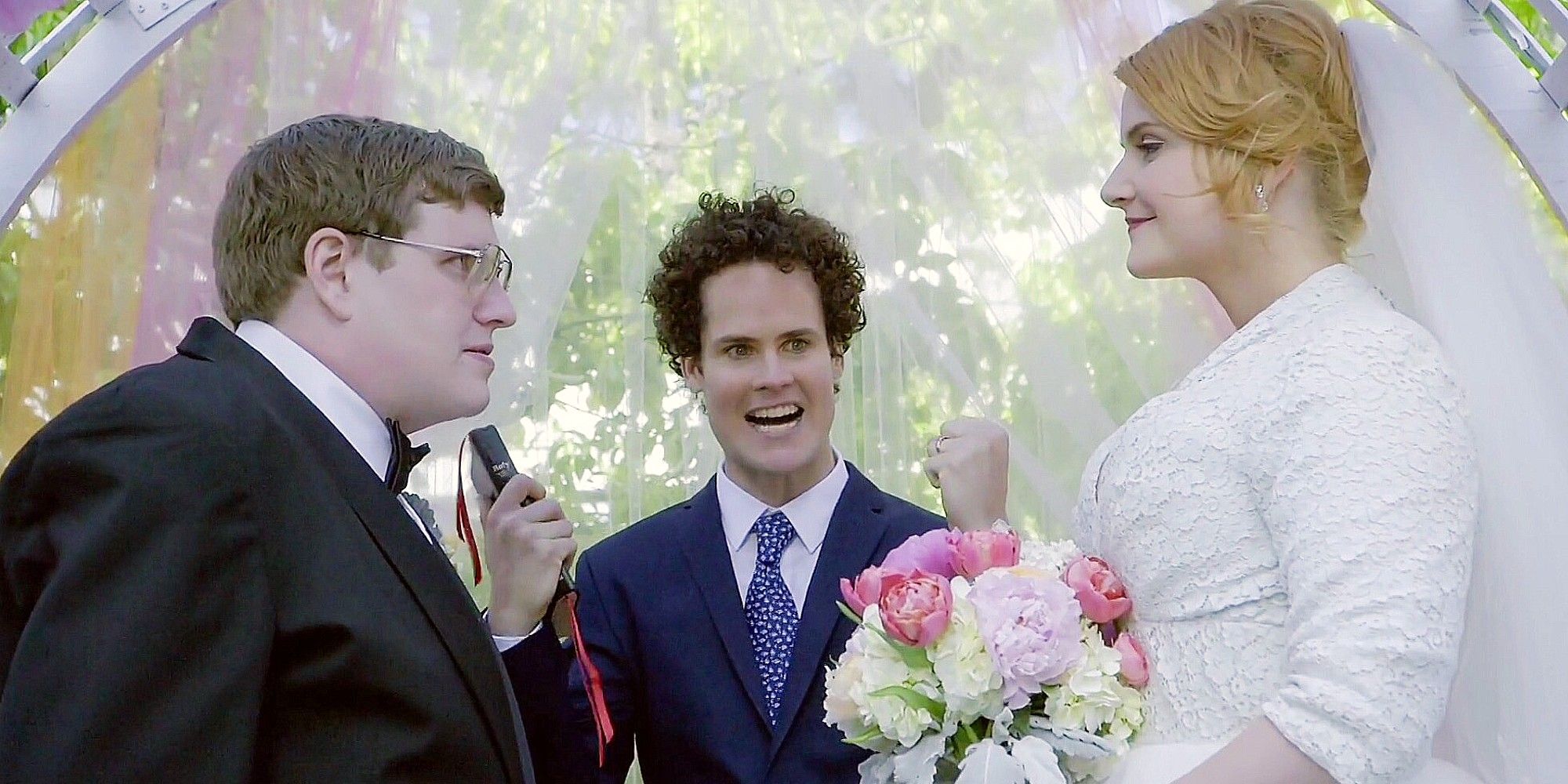The Big Picture
- Collider’s Perri Nemiroff sits down with the team behind Sue Bird: In the Clutch at the 2024 Sundance Film Festival.
- Sue Bird, director Sarah Dowland, producer Emily Singer Chapman and executive producer Jay Ellis discuss their experience plowing through a slew of nos in order to get the documentary made.
- Sue Bird: In the Clutch puts the spotlight on WNBA basketball legend Sue Bird who’s won five Olympic gold medals and became the most successful point guard to ever play the game.
Sue Bird is an undeniable basketball legend. Many already know it, but it’s time to further cement her icon status and massive impact on the sport via a documentary feature, Sue Bird: In the Clutch.
As described by Sarah Dowland in her director’s statement, “At every level Sue Bird delivers. She is competitive, driven, and relentless. She is also willing to use whatever agency she has to change the world for the better.” In the Clutch highlights Bird’s epic career with a heavy focus on her 21st and final year in the WNBA. By revisiting her journey, the documentary digs into what drove Bird to become one of the greatest point guards to play the game, and how she came to the conclusion that it was time to bring that significant chapter of her story to a close by retiring.
Shortly before Sue Bird: In the Clutch celebrated its world premiere at the 2024 Sundance Film Festival, Bird, Dowland, producer Emily Singer Chapman and executive producer Jay Ellis visited the Collider interview studio brought to you by Film.io to detail the shocking amount of rejection they faced trying to get the film off the ground, and how they powered through it. Check out the video interview at the top of this article or the interview transcript below to learn all about how CC Sabathia inspired Bird to rethink what it meant to retire, why Dowland and the team had an enormous amount of creative freedom while making the movie, and loads more.
Sue Bird: In the Clutch
Follows the life of WNBA star Sue Bird, capturing the final chapter of her 19-year career in basketball.
- Release Date
- January 24, 2024
- Director
- Sarah Dowland
- Cast
- Sue Bird , Megan Rapinoe , Diana Taurasi
- Runtime
- 98 minutes
- Main Genre
- Documentary
PERRI NEMIROFF: Sarah, this is your feature directorial debut, right?
SARAH DOWLAND: That’s right.
Why make that move with a documentary, and what was it about Sue’s story that you thought would best suit your skill set and how you wanted to show the world your craft as a feature filmmaker?
DOWLAND: It’s a documentary because that’s the space that I’ve been making films in for the last decade. I was lucky enough to be brought this film by the producers, by Jay. When I started researching Sue and her career and everything that she has done as an athlete, but also her impact on the game and her contribution to women’s sports, I just fell in love with it. I was really inspired by the story. You know, we got quite a lot of rejection at the beginning of trying to get this movie made, and I think that just set a fire off in me where I was just, the more no’s I heard the more, “Yes,” my brain said, “This is the right story to make.”
I was reading that in the press notes. It’s absolutely wild to me that you faced so much rejection. It feels like a no-brainer.
DOWLAND: I mean, it did to me. We felt we had a really strong story and a lot to bring to the table. Getting financing for any film was never a no-brainer, but given the interest in sports and male sports docs that are out there in the space, we knew that there was an audience for it, so we felt like we were bringing a very, very high quality product to the table. And to just kind of be met with that resistance, you know, just felt like it was shocking, but it also, I think, just reignited all of our passion to tell this story.
Standing your ground on this and making it happen will probably make fewer people experience that rejection in the future, so thank you for doing that.
DOWLAND: I hope so.
The ‘Sue Bird: In the Clutch’ Team Weren’t Taking No for an Answer
Jay, I know you’re producing a lot now, but I believe this is your first time producing a feature documentary. Two questions about that. First, were you looking to make a documentary in general, or were you drawn in by Sue’s story specifically?
JAY ELLIS: It’s a little bit of both, but really this was Sue’s story, I think. My producing partner, Aaron Bergman, we have a production company, Black Bar Mitzvah, and we always talk about how we love taking worlds people think they know, tilting them on their axis, and showing you that world from a different point of view. And for us, Sue’s story was, like, exactly that. We think we know women’s basketball, but we don’t really, because there’s not enough storytelling, there’s not enough opportunities out there for women who play in the league to get out and control their own narratives and tell their own stories, and then there’s this other piece of the knowledge that we really have of the WNBA kind of comes through this NBA lens. I mean, a lot of the marketing that we’ve seen in the past, for example, and even some of the deals and stuff, are often formatted from the NBA to WNBA in the past. Again, Sue can speak to a lot of those changes, but we were like, “Oh, that’s really how we know it.” So, what if we take someone like Sue, who has had this legendary, rock star, badass amazing career, and give her the mic, and let her tell her own story? Be a part of telling her own story. And in doing that, she’s also telling the story of the WNBA and of women’s basketball, and of women’s sports at large, to some degree. So it really was Sue’s story that really just sparked an interest for us and made us want to jump in, and actually made us want to beg her to let us tell her story.
What surprised you most about what it takes to produce a documentary feature versus a traditionally scripted narrative feature?
ELLIS: I don’t think anything surprised me. I’ve been a part of some doc stuff before and I’ve done some doc series, so I don’t think anything surprised me. I think it’s back to what Sarah spoke to, though, was the amount of rejection that we got on this when we took it out. And I will never forget us being on the phone — we were on a Zoom, actually — with Sue, and she’s like, “Listen, if you guys don’t sell it, like, I get it. It’s hard. We scream from the mountains, ‘We have the product. We are here. We are entertaining.’ People are showing up and still we don’t get the opportunities.” And I just remember this fire that was lit for all of us. For our entire team this fire was lit of, like, “First of all, we’re not letting Sue down. Second of all, we’re gonna tell this story.” And even if we got the no’s that we got across town — you know who you are — even if we got those no’s, we were going to make those people come back. We were going to go find the money for this doc, make this doc, and make all those people come back on the backend. That’s how we all felt about it.
I love the thought of the no’s seeing this movie and being like, “Shit. We messed that up.”
ELLIS: Oh, they’ll all be there tomorrow. They’ll be there tomorrow.
I like that attitude!
Emily, I know you have a pretty significant amount of documentary producing experience. How were you able to apply that experience to this film, and what expertise could you offer in terms of how best to shape Sue’s story into the feature documentary format?
EMILY SINGER CHAPMAN: That’s a great question. I think for us, we really early on wanted to map out, there’s so much you could tell about Sue’s story, and so many themes that you can expand upon just looking at her story. We knew from the start, early on in meetings, there’s so many ways to tell it, but it made a lot of sense that we were tracking Sue’s final year and to use that as our spine, as kind of a TikTok to get us through the story. And then as we moved through that we could get into the other themes of her story, of coming into the WNBA very early on in a completely different league. And as she grew, she helped the league grow, and we really wanted to follow that trajectory through her story.
I think what is so tempting when you’re following somebody who’s so dynamic, who’s so exciting to watch, and in such an exciting world, day to day it’s like, “Well, god, she’s doing this amazing thing! Should we film that?” And we just really had to continue to come back to the story. What is the story we’re telling, and what is it that we really need in order to tell it? The physicality of being an athlete is only one aspect. A lot of it is the focus, and we really were cognizant of only taking the time that we needed to tell that story and not get in the way of her focus and what she was there to do.
How Winning the Playoffs Convinced Sue Bird to Trust the Process
Sue, now that we’ve talked around you for five minutes [laughs], can you tell me a little bit about what you thought about the team of people at this table, and also the people who were involved that aren’t here today, that gave you the confidence that, “These are the people I should trust with my story?”
SUE BIRD: A big part of it was a good friend of mine, Ryan Ruocco, who is an ESPN announcer, essentially the voice of the WNBA, is really good friends with Aaron, Jay’s partner, also friends with Jay. So immediately there was a trust, because I trust Ryan, and Ryan was kind of the connecting point there. And from that point on, there was a pitch where it was just me, Jay, Aaron, my agent at the time just listening. I was just listening. But I trusted. I trusted already. So, I think as a female athlete in this world, you can get a little jaded at times, you know? You do hear a lot of no’s, and it can be really tiresome and it can feel rejecting and dejecting, and you have to find the energy to get back up all the time. But here was a scenario where I really trusted it. I didn’t feel like that was going to be the case, and obviously, they proved me right. So, it allowed for me to show up as myself, and for, I think, all of us to get a really great doc done.
So you trusted them, but was there any specific thing that made you think, “We can do this together, but I need to make sure that this layer of my experience is in the spotlight in a significant manner?”
BIRD: You know, I actually never thought of it that way, but this pitch meeting that I’m referring to did happen at the end of the 2020 WNBA season. For my team, we had just won, which was amazing, so I was on a little bit of a high, but at the same time, the league was really stepping into its own identity. For anyone that watches the doc, you see there is a trajectory of how this league has grown. I was, like, parallel pathing that in a lot of ways, which is pretty cool to see now. I never really thought of it that way until doing this project, but that pitch meeting happened at a time where women’s sports was really on the come-up. I mean, people were taking note, viewership numbers were changing, and it really just felt like the right time to tell my story more than anything. So, all the pieces fell together.
Given what you just said, and the idea of you running into folks telling you no, it makes me think of the Film.io question we’ve been asking because it’s a company that’s all about putting the power in the creator’s hands. For any of you, whether it’s a film, a show you worked on, or something in basketball, can you recall a time when someone put the creative power in your hands when you didn’t think you were gonna get it?
ELLIS: I mean, I feel like Sarah and Emily should say on this doc. [Laughs]
Fair enough!
ELLIS: I’m joking, I’m joking!
DOWLAND: No, 100%. I would actually agree with that, because I felt like there were so many pivotal moments in the way that this film got made. We started in 2021, and really, we were just going shoot to shoot at that stage because we just didn’t know whether we could find the money, what was going to be the trajectory of this, what Sue was thinking and feeling in terms of her retirement at that time. So, we were really just trying to cobble it together. And we were still exploring creatively, “Will this be a series? Will this be a film?” Like, “What will be the strongest and most powerful tool to tell Sue’s story?” So, you know, I feel like the producers and Sue just kept giving me that trust, and were like, “If you’re gonna put the energy in, everyone else will be behind you,” and vice versa. So, I just felt like everyone else was doubling down, I was doubling down. This felt like kismet to me. I thought, “I don’t know, maybe we’re all dizzy and crazy by doing this,” but there’s something in that craziness that propels you to just make the impossible. And when I would see Sue play, and all the women in the W, I just always felt so inspired. They just got on with it, you know? They just came out, they just did this thing, and I just thought, “This is inspirational to me. If they can do it, damn it, I can do it!” So I don’t know, it was a bit of the producers giving me that, but Sue and the players also inspiring me.
Beautiful answer.
ELLIS: I want to say a big piece of that is Waffle Iron. I just want to shout out Justin Biskin and his team at Waffle Iron because they are a big, big piece of that. They did finance this film, and when we had our first meeting with them, before we even got off the meeting, Justin’s main thing that he came back to us was, like, “We want to empower this creative team to tell this story in the way that the story needs to be told, and we are here to help you in any way we can do that.” And you don’t often get that from financiers, so I just want to give a shout out to them because they were very, very helpful and supporting in this process.
BIRD: One of my favorite parts about this process, sitting here now, is I think some of what everyone on the quote-unquote team has experienced in terms of the no’s and, “Are we going to get it done?” I’m like, “That is my life in women’s basketball. Being told no.” So it’s this really, I think, cool connecting point between us all now where you’re told, “No, you have to find a way.” You’re told, “No, you have to find another way.” And you’re like, “I swear this is good! I swear people are going to be interested. I swear this, I swear that.” And then now you’re sitting here at Sundance, and it’s that moment where I’ve been lucky enough to experience it as an athlete where, you know, maybe I’m in front of people showing them viewership numbers of WNBA playoffs games, saying, “See? I told you.” And now we’re sitting up here at Sundance being like, “See? I told you.” And it’s kind of interesting, you guys got to experience what it is to be a female athlete. [Laughs] How’d you like it?
Why Sue Bird Postponed That Retirement
Speaking of pivots and evolving the film on the fly, I was wondering, originally the movie was supposed to cover your final season, and then it wasn’t your final season. Did you all have the heads-up that that was gonna happen, or was that truly an on-the-spot decision that you had no idea about?
ELLIS: Can I just tell you the text message that went back and forth about, “Should somebody reach out to Sue? Should somebody ask Sue? What do you think Sue’s gonna do? Does anybody know what Sue’s gonna do?” There was an email chain about it. There was a text chain about it. No one knew when the appropriate time to ask was. We wanted to make sure that Sue had enough space and respect where she was in that process. But I just remember like all these emails and text messages going, “It’s been two weeks, should we ask her now?” And everybody’s like, “No, you just have to let her…” And we did use Ryan once again, Ryan Ruocco. Shout out to Ryan, who is one of the producers on this as well. We used Ryan as kind of the conduit to get closer to the answer that we ultimately got, which was that she wasn’t retiring.
DOWLAND: I just want to add a small bit to that — it was after the Olympics, and Sue had won her fifth gold medal. We have cans on and Sue was mic’d, and she was talking, but there were words that she was using that were future tense, and I was like, “Wait a minute. Does that mean what I think it means?” [Laughs] And so I was messaging the executive producers, like, “Do we know? Does anyone know? Because I’m just hearing this on the cans and I feel like maybe there’s a thought happening here that’s just germinating.” I don’t know, you were going through it.
BIRD: I wish I could remember. I’m like, “What did I say?”
ELLIS: This is one of my favorite things; you tell this story of how you talked to a couple of people about their own retirements and, like, how you should or shouldn’t do it, and I don’t think that made it in the doc, but I love that story.
BIRD: Ray Allen, a UConn grad, I’ve known him forever, and then I became friendly the last couple of years with CC Sabathia. If you know their stories as athletes and their retirements — totally different. I talked to Ray, and Ray just, like, kind of faded into the back. His was a little bit different because there was a question mark around him signing with a team, even though he hadn’t played in a year, so it’s a little bit different. I talked to him, and he was very much like, “No, you finish your career and you just kind of go into the sunset. You announce when you’re done. You don’t need all the hoopla,” for lack of a better word. I was like, “Yeah,” because I kind of was on that side of the fence for a while.
Then I talked to CC, because he had just gone through a retirement season where he announced, and he’s like, “You have to do it. You have to do it, and the number one reason is you have to do it for the fans. You have to share this moment. You have to let them say goodbye to you.” I never thought of it in that way, and that really tipped the scale for me not necessarily to come back, but it did play a role. I think I still had some basketball left, so that was really ultimately the deciding factor, but it definitely was the reason I decided to announce my retirement while what ended up being my final season was still going on.
That’s such a beautiful way to think about it. I’ve definitely had that with athletes retiring, but because I’m film and TV-heavy, it makes me think of when a TV show gets cut off too soon, and then the viewer doesn’t have that sense of closure.
BIRD: That’s a good point.
So that was something that didn’t make it into the final cut of the documentary. Can you give me the opposite, something that you weren’t prepared for how big of a role it was going to play in the finished cut?
CHAPMAN: I mean, the first thing that comes to mind is our initial rough cut. UConn, Sue’s college career, was like a feature-length film in its own right, and we were like, “Okay, how much of this story do we really need to tell?” But there is a really pivotal moment there where Sue has an injury, and she’s able to reflect on herself and where she’s meant to head in this game, and for us, we really wanted to take the time to tell that story. I don’t think any of us were anticipating it, but UConn was gracious. They gave us boxes of VHS tapes, of DVDs, of photos, and we have this team who were just taking their time scanning every photo. We just had such wonderful material, home videos that Sue and Diana Taurasi had taken, and it just spoke to us so much that it became a larger part than I think we were anticipating.
That’s such an important part to include because I have to imagine there are many young athletes out there who could think it’s all over when something like that happens, and to be able to see you power through that and where you wound up, it’s probably very inspiring to a lot of people.
DOWLAND: There’s one thing that I would add that was a real discovery for me, and that was really including Sue’s engagement with fans and the way that Sue makes them feel. Once I was filming, I couldn’t help but become a fan, and I know that that’s like a documentary no-no. There were so many times I wanted to, like, high-five her performance, and, “Way to go!” You just can’t help it because the atmosphere is electric. When I would see that exchange and that joy and happiness, I thought, “I have to get that joy into the film. I really wanna show what that’s like because it’s positive.” It was a very palpable thing when I was there, and I really hope that came through in the film.
Oh, I have a follow-up for you, Sue, on that point. I pulled this quote from the notes because I felt like it was important to emphasize here. Sarah, you said, “The hardest thing for me was getting her to acknowledge what she’s achieved, her legacy and what she’s created for girls and for women coming into the game behind her.” Now that the documentary exists, and I’m assuming you’ve seen it, is that undeniable? Do you have to recognize and celebrate that you did that?
BIRD: [Laughs] I never denied it, I just didn’t want to say it.
You should say it! You should be proud of it.
BIRD: Watch the doc. You’ll see. I give in a little bit.
ELLIS: Sue, who’s the greatest WNBA point guard of all time?
BIRD: I think it’s me. Whisper, whisper, whisper!
ELLIS: [Laughs] We love making Sue talk about herself. We love it!
As you should! Seriously.
I’ll end on a film-specific question for you, Sue. We’re talking about how many people out there you inspire in the sports realm, but I’m curious because we’re at the Sundance Film Festival, is there a film you’ve seen in the past that inspired you to do something?
BIRD: Great question! A lot of the sports docs. Well, this has really put me on the spot. Okay, I have one! Finally. [Laughs] My dad took me to see Hoop Dreams when it came out in the local theater. Obviously, it was like a smaller film, so we had to go to some random theater that was like 20, 30 minutes away. And it’s not necessarily that I could see myself in those stories, it was just that these stories were being told, and my dad took that moment to say, like, “Hey, there’s this documentary about these two high school kids in Chicago. Let’s go check it out.” And it was just a really memorable experience. Like, I can vividly remember it and feel what it felt like to see that on the big screen. Again, it wasn’t that I pulled something from it, I just how it made me feel.
Special thanks to our 2024 partners at Sundance including presenting partner Film.io and supporting partners Pressed Juicery and DragonFly Coffee Roasters.

